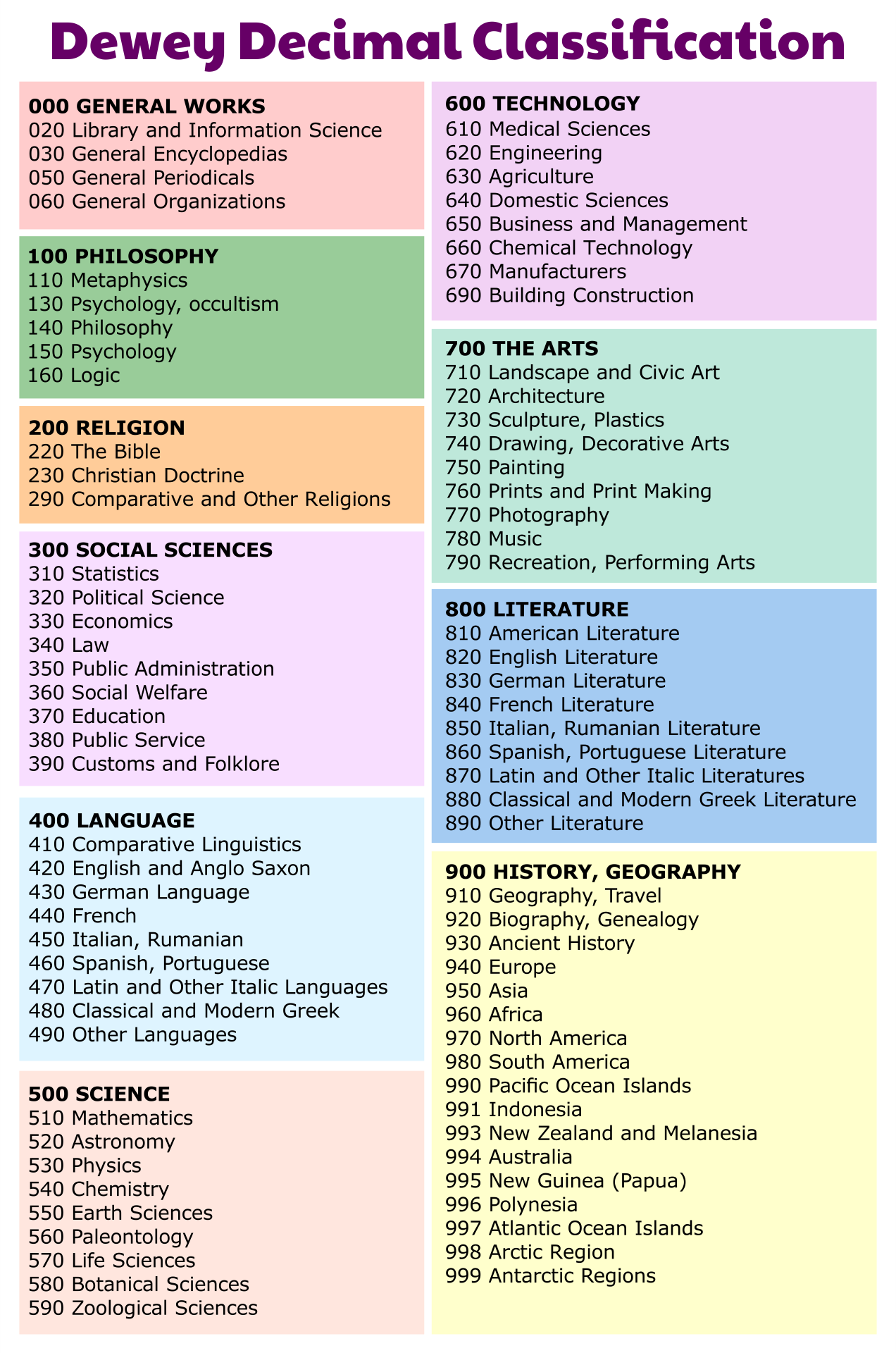The Dewey Decimal Classification System is a widely-used library classification system that allows librarians to organize books, journals, and other materials in a logical and intuitive way. The system was created in 1876 by Melvil Dewey, a librarian who realized that the library classification systems of his time were inefficient and confusing for library users.
Poster Series
 The Dewey Decimal System is composed of ten main classes, each of which is further divided into ten divisions. Each division is then subdivided into ten sections, resulting in a hierarchical system of classification.
The Dewey Decimal System is composed of ten main classes, each of which is further divided into ten divisions. Each division is then subdivided into ten sections, resulting in a hierarchical system of classification.
The classification system is designed to group books on similar subjects together, making it easier for library users to find the materials they need. The system is based on a decimal notation, meaning that each book is assigned a unique call number that consists of a series of numbers and decimal points that correspond to the book’s subject matter.
Classifications
The ten main classes of the Dewey Decimal Classification System are:
- 000 – Computer science, information & general works
- 100 – Philosophy and psychology
- 200 – Religion
- 300 – Social sciences
- 400 – Language
- 500 – Science
- 600 – Technology
- 700 – Arts & recreation
- 800 – Literature
- 900 – History & geography
Example
For example, if you were looking for books on chemistry, you might start by looking in the 500s section of the library. Within that section, you can find books on general chemistry in the 540s division, and books on specific chemical compounds in the 546s section.
 The Dewey Decimal Classification System is used in libraries all over the world, and is an essential tool for library professionals who want to make their collections accessible and user-friendly. Whether you’re a student, a researcher, or simply someone who loves to read, the Dewey Decimal System is a valuable resource that can help you find the information you need.
The Dewey Decimal Classification System is used in libraries all over the world, and is an essential tool for library professionals who want to make their collections accessible and user-friendly. Whether you’re a student, a researcher, or simply someone who loves to read, the Dewey Decimal System is a valuable resource that can help you find the information you need.
Conclusion
The Dewey Decimal Classification System is a powerful tool for library professionals who want to organize their collections in a meaningful and intuitive way. By grouping books on similar subjects together, the system makes it easier for library users to find the materials they need, whether they’re looking for books on history, science, or literature.
Overall, the Dewey Decimal System is a testament to the power of organization and classification, and remains one of the most important tools in the library profession today.